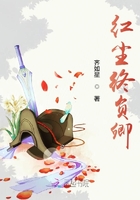"Viola," said the Englishman, taking her hand, and drawing her again to the bench from which she had risen, as he seated himself beside her, "you shall hear me speak! You must know already that I love thee! It has not been pity or admiration alone that has led me ever and ever to thy dear side; reasons there may have been why I have not spoken, save by my eyes, before; but this day--I know not how it is--I feel a more sustained and settled courage to address thee, and learn the happiest or the worst.Ihave rivals, I know,--rivals who are more powerful than the poor artist; are they also more favoured?"Viola blushed faintly; but her countenance was grave and distressed.Looking down, and marking some hieroglyphical figures in the dust with the point of her slipper, she said, with some hesitation, and a vain attempt to be gay, "Signor, whoever wastes his thoughts on an actress must submit to have rivals.It is our unhappy destiny not to be sacred even to ourselves.""But you do not love this destiny, glittering though it seem;your heart is not in the vocation which your gifts adorn.""Ah, no!" said the actress, her eyes filling with tears."Once Iloved to be the priestess of song and music; now I feel only that it is a miserable lot to be slave to a multitude.""Fly, then, with me," said the artist, passionately; "quit forever the calling that divides that heart I would have all my own.Share my fate now and forever,--my pride, my delight, my ideal! Thou shalt inspire my canvas and my song; thy beauty shall be made at once holy and renowned.In the galleries of princes, crowds shall gather round the effigy of a Venus or a Saint, and a whisper shall break forth, 'It is Viola Pisani!'
Ah! Viola, I adore thee; tell me that I do not worship in vain.""Thou art good and fair," said Viola, gazing on her lover, as he pressed nearer to her, and clasped her hand in his; "but what should I give thee in return?""Love, love,--only love!"
"A sister's love?"
"Ah, speak not with such cruel coldness!""It is all I have for thee.Listen to me, signor: when I look on your face, when I hear your voice, a certain serene and tranquil calm creeps over and lulls thoughts,--oh, how feverish, how wild! When thou art gone, the day seems a shade more dark;but the shadow soon flies.I miss thee not; I think not of thee:
no, I love thee not; and I will give myself only where I love.""But I would teach thee to love me; fear it not.Nay, such love as thou describest, in our tranquil climates, is the love of innocence and youth.""Of innocence!" said Viola."Is it so? Perhaps--" She paused, and added, with an effort, "Foreigner! and wouldst thou wed the orphan? Ah, THOU at least art generous! It is not the innocence thou wouldst destroy!"Glyndon drew back, conscience-stricken.
"No, it may not be!" she said, rising, but not conscious of the thoughts, half of shame, half suspicion, that passed through the mind of her lover."Leave me, and forget me.You do not understand, you could not comprehend, the nature of her whom you think to love.From my childhood upward, I have felt as if Iwere marked out for some strange and preternatural doom; as if Iwere singled from my kind.This feeling (and, oh! at times it is one of delirious and vague delight, at others of the darkest gloom) deepens within me day by day.It is like the shadow of twilight, spreading slowly and solemnly around.My hour approaches: a little while, and it will be night!"As she spoke, Glyndon listened with visible emotion and perturbation."Viola!" he exclaimed, as she ceased, "your words more than ever enchain me to you.As you feel, I feel.I, too, have been ever haunted with a chill and unearthly foreboding.
Amidst the crowds of men I have felt alone.In all my pleasures, my toils, my pursuits, a warning voice has murmured in my ear, 'Time has a dark mystery in store for thy manhood.' When you spoke, it was as the voice of my own soul."Viola gazed upon him in wonder and fear.Her countenance was as white as marble; and those features, so divine in their rare symmetry, might have served the Greek with a study for the Pythoness, when, from the mystic cavern and the bubbling spring, she first hears the voice of the inspiring god.Gradually the rigour and tension of that wonderful face relaxed, the colour returned, the pulse beat: the heart animated the frame.
"Tell me," she said, turning partially aside,--"tell me, have you seen--do you know--a stranger in this city,--one of whom wild stories are afloat?""You speak of Zanoni? I have seen him: I know him,--and you?
Ah, he, too, would be my rival!--he, too, would bear thee from me!""You err," said Viola, hastily, and with a deep sigh; "he pleads for you: he informed me of your love; he besought me not--not to reject it.""Strange being! incomprehensible enigma! Why did you name him?""Why! ah, I would have asked whether, when you first saw him, the foreboding, the instinct, of which you spoke, came on you more fearfully, more intelligibly than before; whether you felt at once repelled from him, yet attracted towards him; whether you felt," and the actress spoke with hurried animation, "that with HIM was connected the secret of your life?""All this I felt," answered Glyndon, in a trembling voice, "the first time I was in his presence.Though all around me was gay, --music, amidst lamp-lit trees, light converse near, and heaven without a cloud above,--my knees knocked together, my hair bristled, and my blood curdled like ice.Since then he has divided my thoughts with thee.""No more, no more!" said Viola, in a stifled tone; "there must be the hand of fate in this.I can speak to you no more now.
Farewell!" She sprung past him into the house, and closed the door.Glyndon did not follow her, nor, strange as it may seem, was he so inclined.The thought and recollection of that moonlit hour in the gardens, of the strange address of Zanoni, froze up all human passion.Viola herself, if not forgotten, shrunk back like a shadow into the recesses of his breast.He shivered as he stepped into the sunlight, and musingly retraced his steps into the more populous parts of that liveliest of Italian cities.
BOOK III.
THEURGIA.
--i cavalier sen vanno dove il pino fatal gli attende in porto.
Gerus.Lib., cant.xv (Argomento.)
The knights came where the fatal bark Awaited them in the port.















